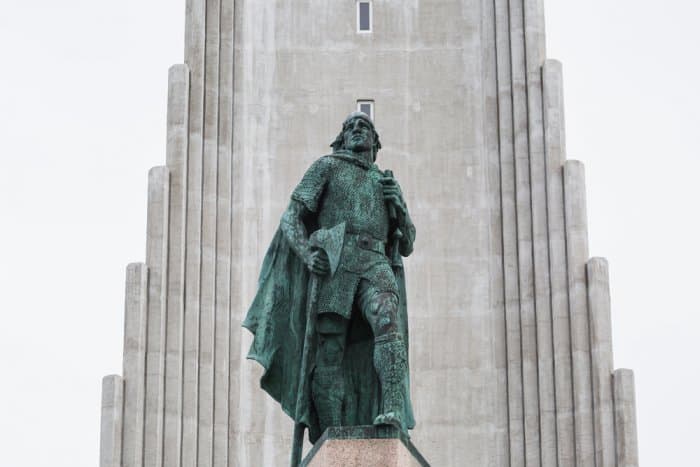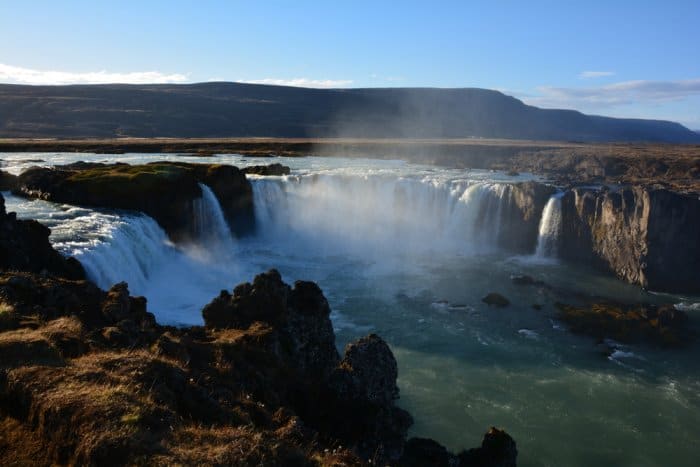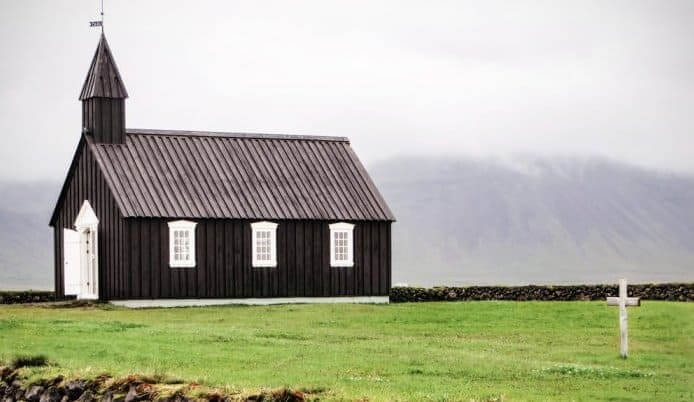Iceland is a country known for its breathtaking landscapes, rich culture, and unique history. When it comes to religion, Iceland has an interesting mix of deep-rooted Christian traditions alongside growing religious diversity. This article will explore the major religions practiced in Iceland today, the history behind them, and how religion plays a role in Icelandic society.
The Major Religions in Iceland
Today, Christianity remains the dominant religion in Iceland, with Lutheranism as the primary denomination. The Evangelical Lutheran Church of Iceland is the state religion, though the country has a high level of religious tolerance and freedom. Icelanders enjoy the right to practice any religion, and the nation has seen a steady rise in religious diversity over the years.
The Evangelical Lutheran Church of Iceland
The Evangelical Lutheran Church of Iceland is the largest religious institution in the country, with over 60% of the population registered as members. This church has been the official state religion since Iceland’s transition to Christianity in 1000 AD. Lutheranism, as a Protestant denomination, emphasizes the importance of faith and scripture, and it plays a significant role in Icelandic cultural identity. Religious ceremonies like baptisms, weddings, and funerals are commonly conducted within the Lutheran framework.

Other Christian Denominations in Iceland
Although Lutheranism is the largest denomination, there are other Christian religions in Iceland. These include the Roman Catholic Church, the Free Lutheran Church, and smaller Protestant congregations. The Roman Catholic Church has a significant presence, with the Cathedral of Christ the King in Reykjavík being the central hub for Catholic worshippers.
Iceland’s Growing Religious Diversity
In recent decades, Iceland has seen a noticeable increase in religious diversity. While Christianity remains the majority faith, other religions have begun to grow in influence and practice. Iceland’s Muslim population, though small, is steadily increasing, and the country has a Buddhist Association as well as a Pagan revivalist movement, known as Ásatrú.
Ásatrú: A Revival of Norse Paganism
One of the most unique aspects of religion in Iceland is the revival of Ásatrú, a modern-day practice of Norse paganism. This religion, rooted in Iceland’s Viking past, focuses on the worship of Norse gods such as Odin, Thor, and Freyja. The Ásatrúarfélagið (the Pagan Association of Iceland) was officially recognized as a religious organization in 1973, and today, it is the fastest-growing religion in the country. Followers of Ásatrú participate in seasonal celebrations, including blót (feasts) and other traditional rituals.
The Historical Role of Christianity in Iceland
Iceland’s journey to becoming a Christian country began in the year 1000 AD when the Althing (the national parliament) decided to officially adopt Christianity. Before this, Icelandic religion was primarily based on Norse paganism. The decision to convert was made peacefully to avoid civil unrest, marking a significant cultural shift in the nation.
Why did Iceland adopt Christianity? The pressure to adopt Christianity came from neighboring Scandinavian countries, which had already converted. Icelandic leaders saw the benefits of aligning with the Christian world, particularly in terms of trade and political alliances. However, many pagan traditions were allowed to continue in private for a period, which helped ease the transition.
Religious Demographics in Iceland Today
Although Christianity continues to be the main religion in Iceland, religious demographics have evolved over time. As of recent statistics:
- 60-65% of Icelanders are members of the Evangelical Lutheran Church.
- 5% of the population practices other Christian denominations, such as Roman Catholicism.
- 1-2% of Icelanders are affiliated with Ásatrú.
There are smaller percentages of Muslims, Buddhists, and Jewish communities, along with a growing number of people who identify as non-religious or atheist.
Iceland’s population is relatively small, so even minor shifts in religious affiliation can have a notable impact on the religious landscape. Icelandic religious demographics reflect the country’s overall trend toward secularism, with younger generations increasingly identifying as non-religious. That said, many Icelanders, even those who do not practice religion actively, still participate in traditional Christian rites, such as baptisms, confirmations, and church weddings.
Religion and Society in Iceland
In Iceland, religion does not play as central a role in daily life as it might in other parts of the world. Is Iceland a religious country? While the majority of the population identifies with a particular religion, the overall approach to religion in Iceland is casual. Many Icelanders see religious affiliation as part of their cultural identity rather than a strict guide for daily living.
Religious holidays, such as Christmas and Easter, are widely celebrated, though often with more emphasis on cultural traditions rather than religious observance. For example, the Yule Lads—folkloric figures who are part of Icelandic Christmas traditions—are not linked to Christianity but rather to ancient folklore.
Religious Tolerance in Iceland
Icelandic culture is marked by a high degree of religious tolerance. The country’s constitution guarantees freedom of religion, and Icelanders are generally open-minded about different beliefs. This tolerance extends to both traditional Christian denominations and newer religions, as well as those who identify as atheist or agnostic. What religion is Iceland? While Christianity is the most common faith, the growing diversity of religious practice is becoming a defining characteristic of religion in Iceland.
Religious organizations, including Ásatrú, Islam, Buddhism, and others, are granted the same legal rights as Christian churches, which ensures equality in religious practices across the country.
Religion in Modern Iceland: A Secular Society?
One of the most significant trends in Iceland’s religion today is the rise of secularism. A growing number of Icelanders are choosing to forgo religious affiliation altogether. According to recent surveys, approximately 40% of Icelanders under the age of 25 do not identify with any religion. This shift reflects a broader trend in many Nordic countries, where traditional religious institutions play a less prominent role in public life.
Despite this, religious festivals and holidays are still observed and are often seen as an important part of Icelandic culture, even for those who consider themselves non-religious.

Not long after, this situation reached a critical point. Iceland’s leaders then decided to held a meeting at the Alþingi (Iceland’s Parliament). There, not after having long and passionate discussions, it was decided that Iceland would become Christian. The Law Speaker of the Alþingi, who was also a pagan priest, threw his sculptures of pagan gods off a waterfall as a metaphor. This waterfall is the famous Goðafoss, which basically translates to “Waterfall of the Gods”. Christianism was now the official religion in Iceland by 999-1000 AD.
Iceland then remained officially catholic until the reformation era. Iceland then turned its eyes to Lutheranism back in 1550.
What is then the status of Religion in Iceland nowadays? According to statistics, 85% of Icelanders are Christians. At the beginning of this post, we already mentioned the contrast of a religious numbers and a not so religious country. Statistics are somewhat misleading. Icelanders are automatically registered as member of the church of Iceland when they are born. Just like many other Scandinavian countries, attendance to church is quite low, just about 11% attend a church service regularly.

Frequently Asked Questions
What are the top 3 religions in Iceland?
The top three religions in Iceland are Lutheran Christianity (Evangelical Lutheran Church), Roman Catholicism, and Ásatrú, a modern revival of Norse paganism.
What is the official religion in Iceland?
The Evangelical Lutheran Church of Iceland is the official state religion, with over 60% of Icelanders registered as members.
Are there any Muslims in Iceland?
Yes, there is a small but growing Muslim population in Iceland, which represents less than 1% of the total population.
Why did Iceland adopt Christianity?
Iceland adopted Christianity in 1000 AD largely due to political and trade pressures from neighboring Christian countries. The decision was made peacefully to avoid internal conflict while still allowing some pagan practices to continue privately.
Whether you are visiting Iceland to explore its history or simply curious about its religious landscape, you will find that religion in Iceland is a unique blend of tradition, tolerance, and modern secularism. While Christianity remains the dominant faith, the country’s openness to religious diversity continues to shape the culture.




